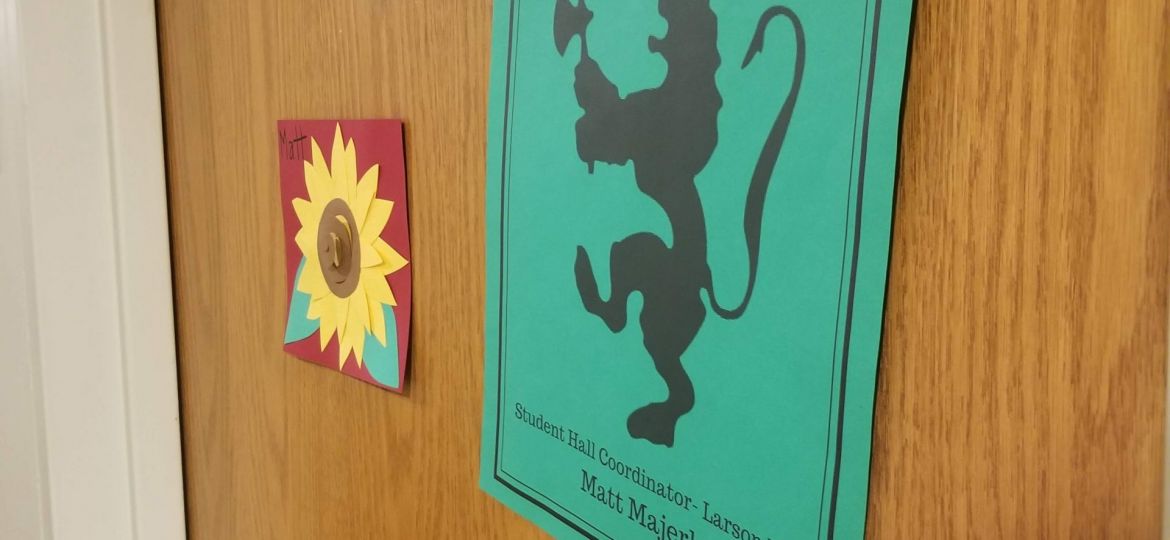
Effective next fall, resident assistants (RAs) will be charged $1,000 a semester, as well as room and board fees, to live in singles. Having a single room was previously included as a perk of the position.
This new policy was formed to make space for those in need of singles for medical purposes. Within the last year, St. Olaf has seen an increased demand for medical singles, with the College being 15 beds short this fall. To offset the shortage, Residence Life looked to RA housing.
“We anticipate the need growing, so our only remaining beds that are singles are in RA rooms,” Assistant Dean of Students for Programming and Assessment Joshua Lee said.
The compensation for Residence Life staff will increase next year with RAs and junior counselors (JCs) receiving $4,000 a year – a $250 increase from this year. This increase will help offset the rooming change.
RAs will be able to choose their roommate and will not have to participate in room draw. However, living with another member of Residence Life won’t be ideal due to the distribution of Residence Life staffing across dorms. Due to how RAs are distributed in dorms, it’s not always possible for two RAs to live in one room, Lee said.
While they understand the cause of the change, student Residence Life staff members are concerned about the implementation and the safety of both RAs and residents.
“There’s a safety concern, because this means that RAs will have roommates that aren’t ResLife staff members, and they aren’t compensated despite the fact that they will be woken up when someone is at the door at 3 a.m.,” said Student Hall Coordinator Jonah Schmitz ’20.
Schmitz highlighted the importance of having a single room for RAs to decompress and a space to relax outside of work – a space where roommate troubles are non-existent. He emphasized that being an RA doesn’t make you a good roommate, and it’s concerning that RAs’ attention could be taken away due to roommate troubles.
Eva Knee ’20, Area Coordinator (AC) for Kittlesby and Hilleboe Halls, is a former RA with a roommate, and while her roommate was former Residence Life staff, Knee felt like having a roommate worked. She also acknowledged that upperclassmen normally don’t need the same amount of support as first-years, which lowers the amount of students who require staff assistance.
“As an RA, a lot of students are just very self-sustaining,” Knee said.
“They have their support groups already, they have the people that they need to see, and so a lot of people don’t really come to you as much,”
To ease possible concerns, Lee hopes this new change can allow former Residence Life staff to room with current staff. This will help current staff members to understand the role and to potentially serve as a proxy for interim, Lee said.
However, Schmitz believes that staff members are losing incentive to do a demanding job.
“By removing the perk of having your room, there’s less and less incentive and it’s a really demanding job, where you have to sacrifice a quarter of your pay,” Schmitz said. “I understand they have limited options. I would have hoped they would have pursued other options.”
“By removing the perk of having your own room, there’s less and less incentive and it’s a really demanding job”
– Jonah Schmitz ’20
With Residence Life applications due March 1, Lee stated that numbers have been on track. If RAs choose not to pay for a single and cannot find a roommate to share a double, Residence Life does not intend on assigning random roommates. However, they will work with the staff member to find a good roommate.
With potential for additional housing on the horizon, Residence Life will continue to evolve.
“As housing accommodations change in the future, we will make decisions that are best suited for our campus, student body and staff,” Lee said. “Nothing is out of the question.”

